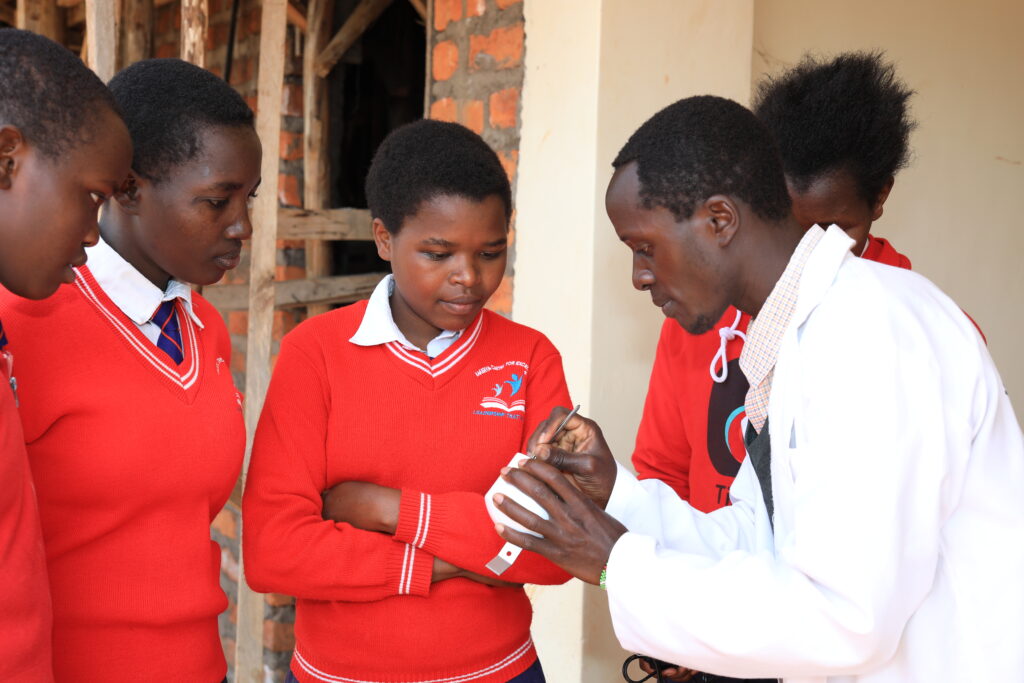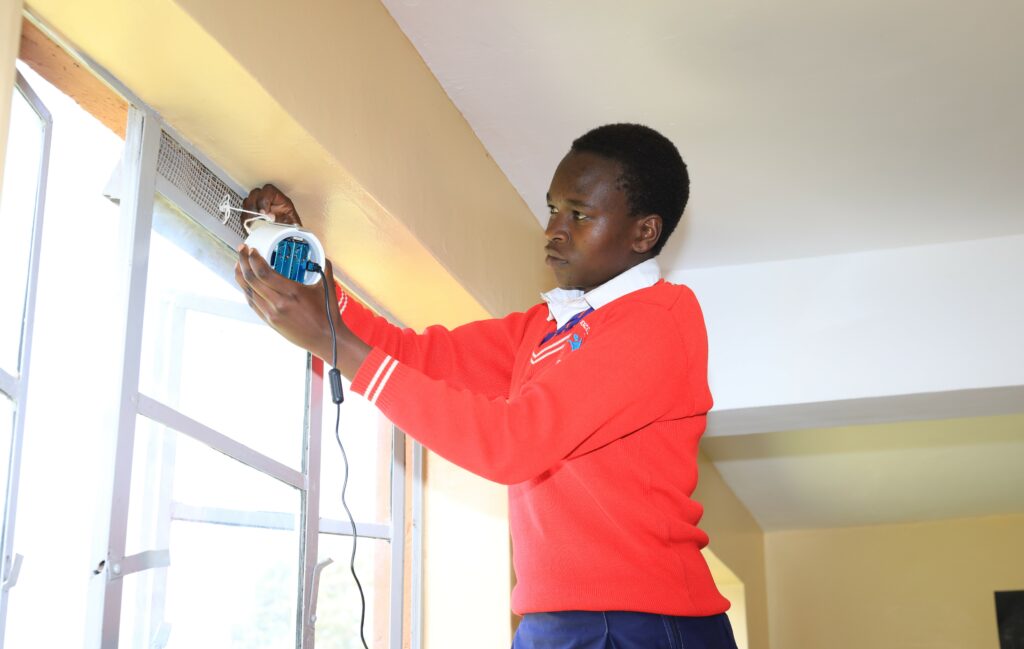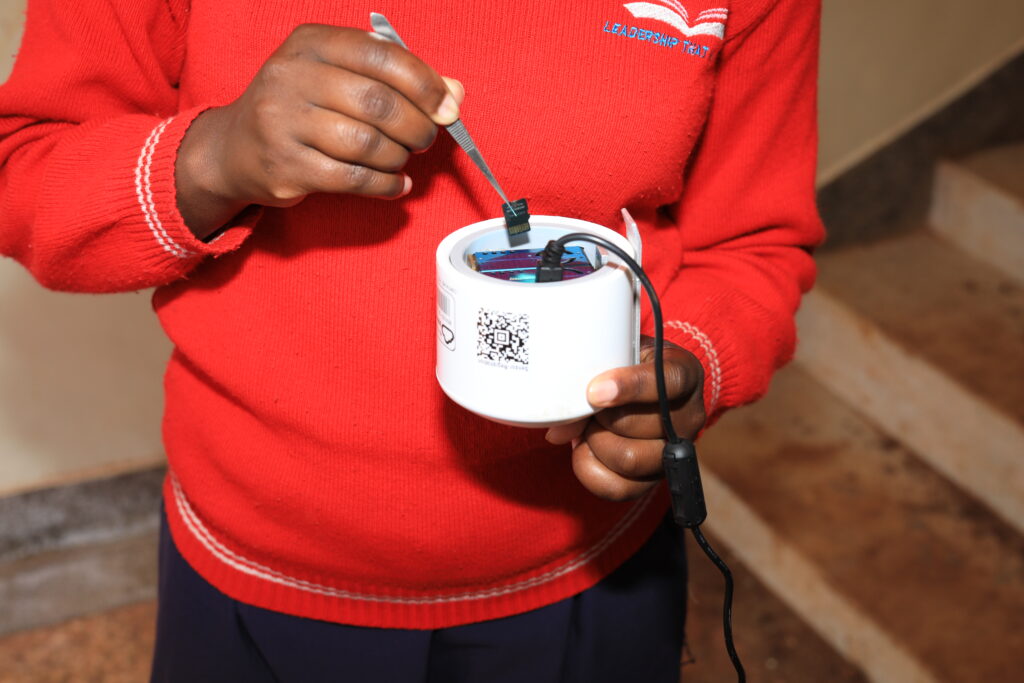It is undeniable that climate change has become one of the most dire global emergencies of our time. Sadly, its catastrophic effects are felt most by vulnerable communities around the world, including those we serve at Kakenya’s Dream.
With Kenya experiencing some of the devastating effects of climate change like drought and famine firsthand, it is a priority at our Centers for Excellence that our students learn about the environment. We ensure they have access to a wide range of STEM programming that is both practical and relevant to their daily lives.
In the fall of 2021, we launched a brand new educational course with the University of Pittsburgh’s Swanson School of Engineering to teach our 10th graders at KCE II about monitoring and improving air quality. Jessica Valden, a PhD candidate at the school and Dr. Melissa Bilec, PhD, LEED AP engaged with our students over the course of 7 months via Zoom. The course started by teaching our students the basics of monitoring air quality and helping them understand the connection between air quality and their health.
Jessica shares, “This was my first experience developing and teaching modules on air quality to young international students and it has been rewarding to say the least. It was an honor to work with both the students and the teachers introducing them to the importance of air quality through interactive activities and data analyses. The time difference, in addition to relying on Zoom, did not deter the students’ enthusiasm for this project and I am so proud of the work they put in to make this experience successful.”

Throughout the seven month course, students learned how to develop hypotheses and test out their theories about how different activities taking place on campus impact the air quality using PurpleAir monitoring devices. They studied the impacts of buildings being located closer to high-traffic dirt roads, and cooking over wood-burning stoves in the school kitchen. They also explored how to analyze the data collected from the monitoring devices.
Our student Ann-Claire observed, “from the data collected by the sensor, we realized that there was more air quality degradation at the construction sites on campus due to rigorous dust-producing activities at the location. We learned that particles including cement and soil were responsible for the high levels of pollution.”
Ann-Claire also explains, “as a school located barely four kilometers away from a sugarcane factory, we observed that the air we breathe had other pollutants. We established that the fly ash emitted through factory chimneys were compromising the quality of air we breathe. The gasses released from the factory also fall back as acid rain and are responsible for the erosion of metal and concrete surfaces in buildings in our community.”

The last few modules of the course focused on implementing different technical and sustainable solutions to help improve air quality and mitigate the negative effects of poor air quality on their health.
Student Brenda shared, “we realized that we all have a role to play in mitigating pollution.” Another student, Emily, opined, “we must plant trees to assist us in cleaning the air. We also need to share more stories on environmental protection and encourage innovations in the use of renewable energy.”
This type of well-rounded STEM education both supplements the government curriculum, and introduces our students to distance learning and more engaging types of pedagogy that focus on working in teams and learning by doing. This kind of educational offering was unimaginable just a few years ago. But now, with consistent electricity and improved internet connectivity thanks to the solar grid we installed last year, our students can now be connected and engaged with the wider world.

In 2023, we’ll be partnering with the University of Pittsburgh again to bring this course to more of our students. Our students at KCE II will also be exploring sustainable land and agricultural management later this year.
Overall, it is clear that learning about the environment and climate change has left a lasting impression on our students. “Our training by Pittsburgh University confirmed to us that unless we all put interventions in place, millions of people will continue to fall ill and lose lives around the globe. Not only are our lives at stake, but the entire future generation,” says Ann-Claire.
Elizabeth adds, “We realized that we need to advocate for a cleaner environment. We have to raise the alarm and condemn pollution emanating from negligence. Environmental activism should involve all of us. Silence will lead to adverse levels of pollution and if we are not careful, future generations will have no place to live.”

